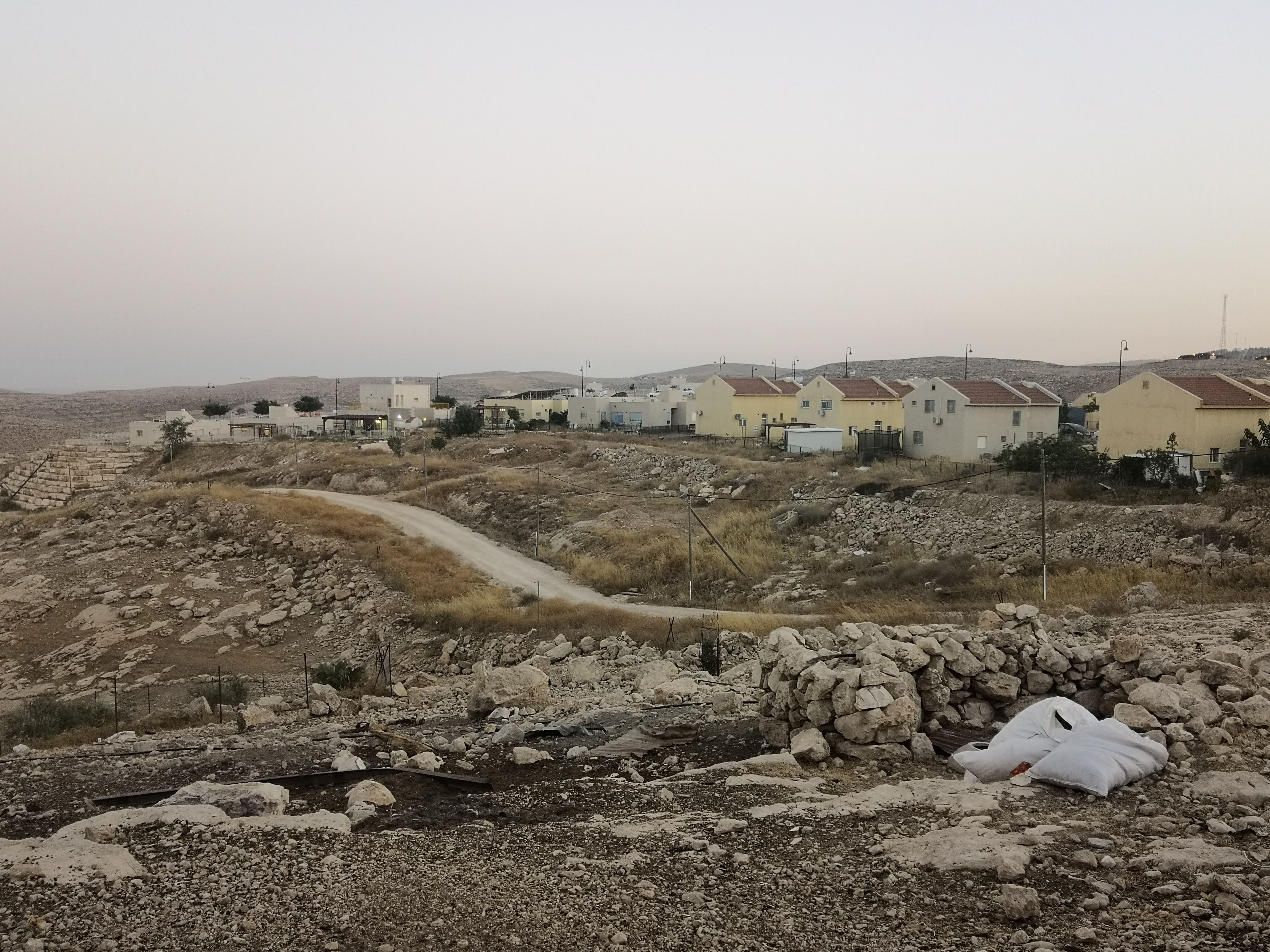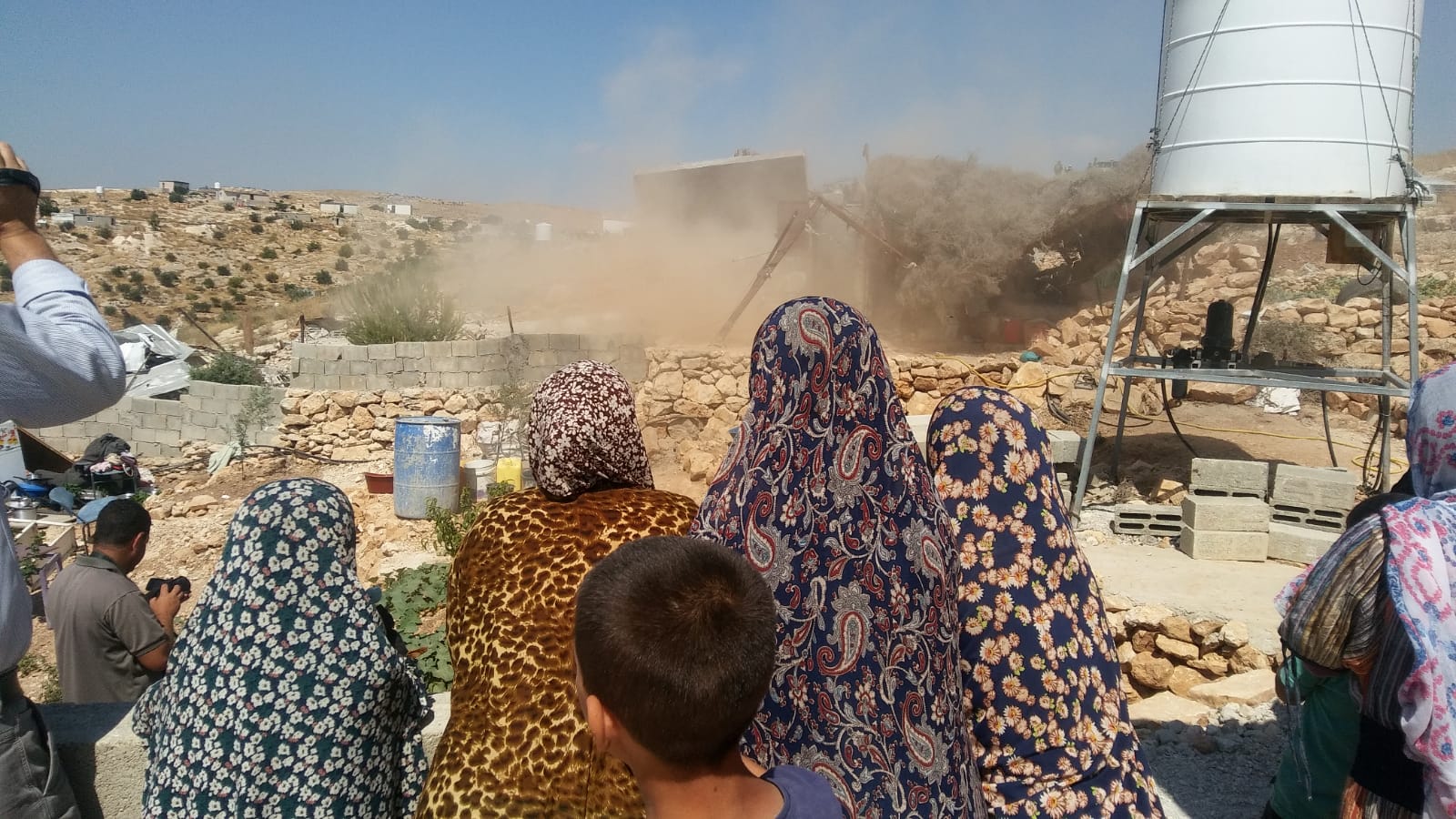Tag: Eviction
-
Bedouin village of Um al-Kheir fights against new demolition threats
June 26 | International Solidarity Movement | Umm al-Kheir, south Hebron Hills, occupied Palestine The Bedouin village of Um al-Kheir in the South Hebron Hills have launched a new bid to save their homes from demolition. On Monday, activists from the village submitted a new master plan to the Israeli Civil Administration which, if accepted,…
-
Villagers live in fear and uncertainty as four more homes demolished in South Hebron Hills
June 18, 2019 | International Solidarity Movement | South Hebron Hills, occupied Palestine Occupation forces went on a demolition spree yesterday in the South Hebron Hills, bulldozing the homes of four families in two villages. A convoy of border police, Israeli Civil Administration officials, soldiers and two JCB bulldozers arrived in the village of Khalet…



